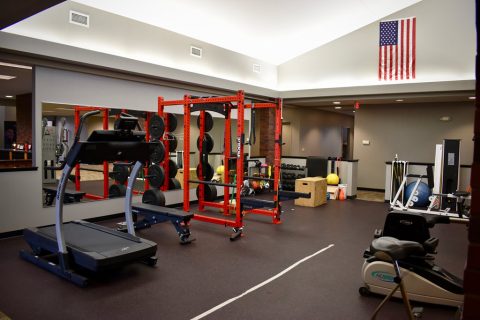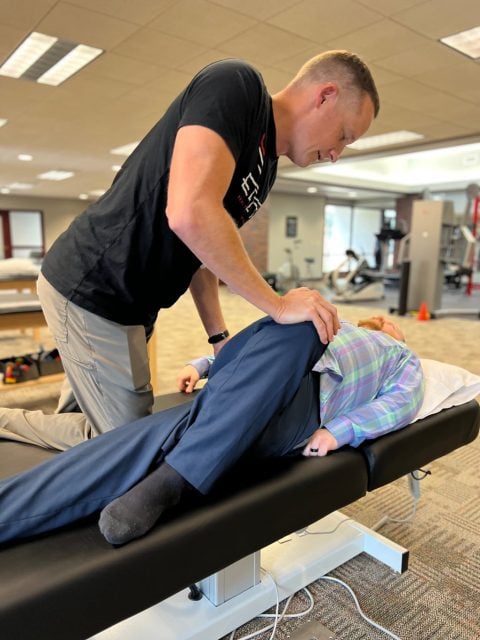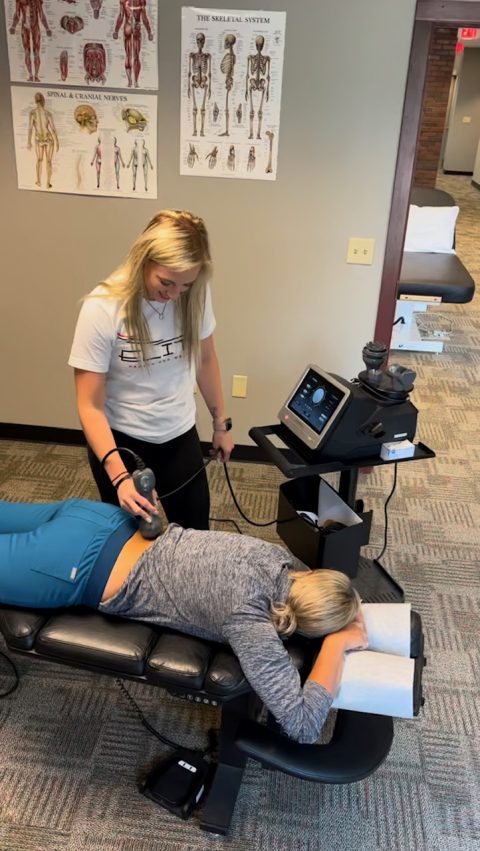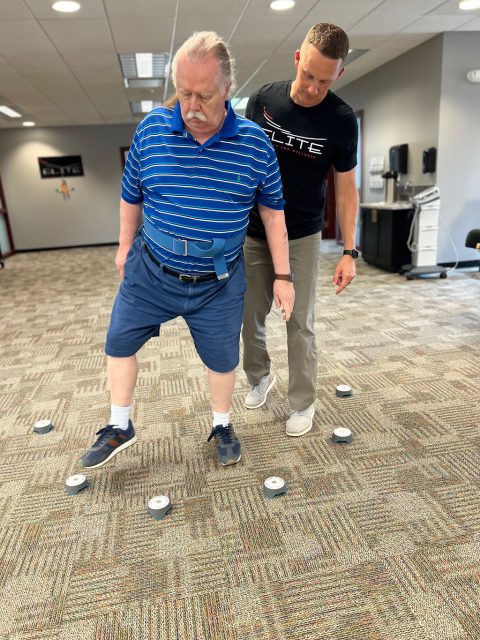Physical Therapy in Kearney
ElitePhysical Therapy
Elite Health and Wellness in Kearney, NE offers a wide variety of physical therapy treatments and modalities depending on our patients’ needs, including pre and post-operative rehabilitation, dry needling, kinesiotaping, one-on-one and sports performance coaching, corporate wellness services, instrument-assisted soft tissue mobilization, and more.
Postoperative Rehabilitation
Why is physical therapy important after surgery?
Physical therapy following surgery will help to decrease pain, improve swelling, improve range of motion, improve strength, and improve mobility and your return to normal activity.
Rehab timelines will vary depending on the type of surgery, your age, your surgeon’s restrictions following surgery, and activities you plan to return to following surgery. Most people will start rehab anywhere from 2 days to 1 week following surgery.
What kinds of surgeries most benefit from post-op rehab?
Anyone who has a surgery to the foot/ankle, knee, hip, hand/wrist, elbow, shoulder, and spine will benefit from post-op rehabilitation.
Preoperative rehabilitation (Prehab)
What does prehab consist of and what are the benefits?
Prehab typically consists of range of motion exercises, treatment to reduce swelling, pain control, improving gait and ambulation, and strength training.
Prehab helps to control swelling and pain and restore range of motion prior to surgery. This helps with limiting pain, limiting scar tissue formation, and leads to improved postoperative outcomes.
What kinds of surgeries most benefit from prehab?
Most commonly ACL surgeries will consist of a short phase of prehab before surgery. Also, shoulder injuries including rotator cuff, labrum, and dislocation that require surgery will benefit from prehab. Other surgeries for injuries to ankle, knee, hip, elbow, and shoulder may need prehab depending on pain control, swelling, limited motion, and overall functional ability.
Wellness Physicals
Our wellness physicals start with gathering basic health information including height, weight, heart rate and blood pressure. The rest of the physical will focus on strength, range of motion, flexibility, and balance assessment.
There is no potential diagnosis provided, blood analysis, or urinalysis completed or drug prescription, as you may find in a physical provided by your family or medical provider.
Vestibular treatment for dizziness
What does vestibular treatment consist of?
Typical treatment for vestibular disorders will consist of balance exercises, coordination exercises, postural exercises, and eye gaze exercises. The epley maneuver is another common treatment for BPPV which consists of a series of rolling movements directed by the treating provider.
What dizziness-related conditions and symptoms can we help treat?
Most common conditions related to the vestibular system include but not limited to: Benign Paroxysmal Positional Vertigo (BPPV), concussion related vestibular disorders, vestibular neuritis, vestibular hypofunction, cervicogenic dizziness and Meniere’s disease.
Symptoms can range from dizziness, vertigo, nausea, lightheadedness, poor coordination, balance impairments, fall risk, vomiting, difficulty sleeping, difficulty walking and standing, and poor tolerance to positional or postural changes.
Movement Screenings/Assessments
We conduct Functional Movement Screens (FMS), developed by Gray Cook and designed to evaluate an athlete’s potential injury risk and provide performance enhancement exercises and education.
Primarily the FMS was designed with athletes in mind, but it can be catered to anyone from your weekend warrior to any able-bodied individual looking to improve overall health and wellness.
Physical TherapyServices
- Post-operative rehabilitation
- Pre-operative rehabilitation / Prehab
- Wellness physicals
- Dry needling
- Kinesiotaping
- Instrument-assisted soft tissue mobilization
- Fall risk screens and balance training
- Vestibular treatments for dizziness
- One-on-one coaching
- Sports performance coaching
- Functional Movement Screens (FMS)
- Functional capacity evaluations (FCE)
- Industrial post offer employment tests
FAQ
Yes, it is covered by insurance.
Yes, it is covered by insurance.
Physical Therapy Specialists
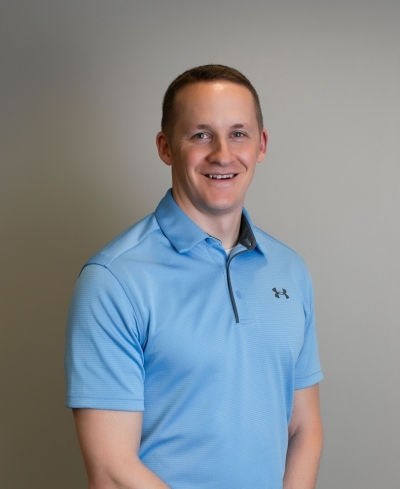
Matt is a former collegiate football player who has spent nearly his entire professional life
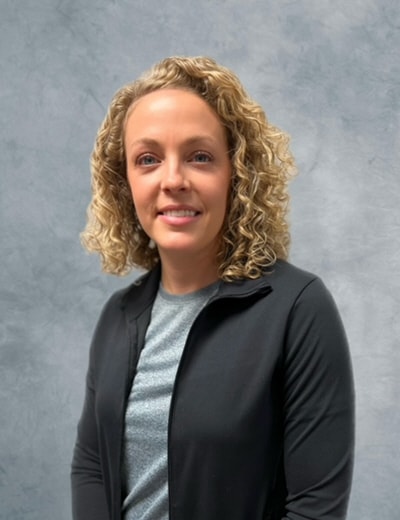
Josie is a Physical Therapist who has been practicing primarily in the outpatient setting in
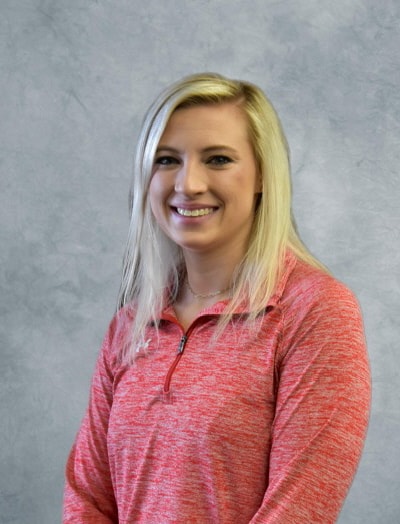
At Elite Health and Wellness, Cambrie is the Physical Therapist Assistant who works to improve
